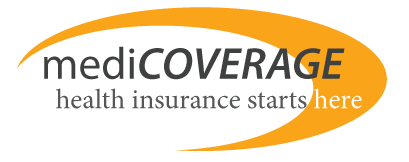HSA Health Account
HSA health accounts are more commonly known as health savings accounts or simply HSAs. HSAs function only in partnership with a specific type of health insurance plan called a High Deductible Health Plan. The two products—the HSA and the HDHP— combine to function as one health insurance distribution and payment plan. Together they create an affordable product with additional benefits for the consumer that extend beyond what is typically offered by a traditional health insurance plan alone.
The HSA/HDHP duo was created by an act of Congress. It replaced the medical savings account and started with the Medicare Prescription Drug, Improvements and Modernization Act that was passed into law on December 8, 2003.
HSA Minimum and Maximum Limits
There are specific amounts that you can contribute to your HSA each year.
2016 HSA Limits
| HSA | 2016 Limits |
| Deductible | $1,300/$2,600 (ind/fam) |
| Contribution | $3,350/$6,750 (ind/fam) |
| Max Out of Pocket | $6,550/$13,100 (ind/fam) |
2015 HSA Limits
| HSA | 2015 Limits |
| Deductible | $1,300/$2,600 (ind/fam) |
| Contribution | $3,350/$6,650 (ind/fam) |
| Max Out of Pocket | $6,450/$12,900 (ind/fam) |
Growing Money Tax-Free with an HSA Health Account
The best part about an HSA is that if you have a healthy year and don’t spend all the money in the account, it transfers to the next year. It is your money to keep and the total amount in your account can keep growing, year after year—it is the annual contributions that are capped, not the total amount in the account. So unlike other, lower deductible plans, you get to keep any savings and you get to control how you want your insurance money spent. Don’t confuse this plan with health reimbursement plans where you lose it at the end of the year if you don’t use it. It’s yours forever and can transfer to your family if there’s a balance when you pass.
The money in your HSA health account, like any health premium, is tax deductible and the money in the HSA grows tax-free as long as you use it only to pay for medical expenses. If you remove or use any funds for non-medical expenses and you’re younger than 59 A,A?, you’ll pay a federal tax penalty.
The HSA is Flexible
The tax code allows you to use your HSA money for such diverse items as dental treatment, alternative medicine like acupuncture, and some over-the-counter remedies. However, your insurance company that carries the high deductible health plan may not recognize these payments toward your deductible if they don’t allow payment for them in their plan. See our page on HSA Qualified Expenses to get an idea of what you can spend your HSA dollars on. Because the list of HSA qualified expenses is fairly diverse, you may not need a separate prescription drug plan, dental, or vision care plan, which is another way that having an HSA can save you money on health insurance premiums.
The health savings account is one of the best opportunities to save money on health insurance if your medical bills don’t normally meet your deductible amount each year. The high deductible plan often has a very inexpensive premium that saves money. For healthy individuals and families, the savings you achieve will often more than cover the amount of money a plan with a lower deductible would pay. For more information call 800-930-7956 or click here for a Health Savings Account (HSA) quote.

Comments and Questions
Click to leave a Comment